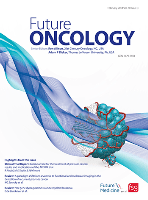
Future Oncology
Scope & Guideline
Shaping the future of cancer treatment and research.
Introduction
Aims and Scopes
- Clinical Trials and Therapeutic Innovations:
The journal publishes studies related to clinical trials of new drugs, treatment combinations, and therapeutic strategies. This includes research on immunotherapy, targeted therapies, and combination treatments for various cancers. - Real-World Evidence and Patient Outcomes:
Future Oncology emphasizes the importance of real-world data in understanding treatment effectiveness and patient experiences. Studies often explore treatment patterns, healthcare resource utilization, and the economic burden associated with cancer therapies. - Biomarkers and Personalized Medicine:
Research focusing on the identification and validation of biomarkers for cancer diagnosis, prognosis, and treatment response is a core area. The journal supports the development of personalized medicine approaches tailored to individual patient profiles. - Quality of Life and Patient-Centered Care:
The journal addresses the psychosocial aspects of oncology, including quality of life assessments, patient-reported outcomes, and the impact of cancer treatments on patients' daily lives. - Emerging Technologies and Methodologies:
Future Oncology covers advancements in technology such as artificial intelligence, machine learning, and liquid biopsies that aim to enhance cancer diagnosis, monitoring, and treatment.
Trending and Emerging
- Immunotherapy and Combination Treatments:
There is an increasing focus on immunotherapy, particularly the combination of immunotherapeutic agents with other modalities. Research in this area highlights the potential for synergistic effects to improve patient outcomes. - Precision Medicine and Genomic Profiling:
The trend towards precision medicine is reflected in the growing number of studies exploring genomic profiling and biomarker-driven therapies, aiming to tailor treatments to individual patients based on their genetic makeup. - Real-World Data and Patient-Centric Research:
Emerging themes emphasize the collection and analysis of real-world data to inform treatment decisions, improve care pathways, and enhance patient engagement in their own treatment journeys. - Health Disparities and Access to Care:
Research addressing health disparities in cancer care and the need for equitable access to innovative treatments is gaining traction, reflecting a broader societal focus on social determinants of health. - Technological Advancements in Cancer Care:
The integration of new technologies, such as artificial intelligence in diagnostics and treatment planning, is becoming a significant focus, as these advancements promise to revolutionize oncology practice.
Declining or Waning
- Traditional Chemotherapy Studies:
There is a noticeable decline in publications focusing solely on traditional chemotherapy regimens. As targeted therapies and immunotherapies gain prominence, studies purely centered on chemotherapy alone are becoming less frequent. - Single-Agent Studies:
Research on the efficacy of single-agent therapies is decreasing, as the field moves towards combination therapies that harness synergistic effects for better outcomes. - Basic Science Research:
While foundational research remains important, there is a shift away from purely basic science studies towards clinical application and translational research that directly impacts patient care. - Older Treatment Modalities:
Publications focusing on older treatment modalities, such as older radiotherapy techniques or conventional surgical approaches, are diminishing as newer, less invasive techniques and personalized strategies come to the forefront. - Epidemiological Studies without Clinical Implications:
Epidemiological studies that do not translate into actionable clinical insights or interventions are less frequently published, as the journal prioritizes impactful research that informs clinical practice.
Similar Journals
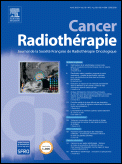
Cancer Radiotherapie
Advancing cancer care through innovative radiotherapy research.Cancer Radiotherapie, published by Elsevier, is a respected academic journal dedicated to advancing the field of oncology and radiology through original research and comprehensive reviews. With an ISSN of 1278-3218 and an E-ISSN of 1769-6658, the journal serves as a vital platform for disseminating knowledge and innovation in cancer treatment methodologies, specifically focusing on radiotherapy. As of 2023, it holds a Category Quartile of Q3 in both Oncology and Radiology, Nuclear Medicine and Imaging, reflecting its significance within these domains amidst a competitive landscape. Despite its current rankings—205th out of 333 in Radiology and 269th out of 404 in Oncology—it continuously strives to build a reputable presence with contributions that push the boundaries of cancer therapy. Although open access options are not available, the journal is committed to ensuring that valuable insights reach healthcare professionals and researchers worldwide, contributing to improved patient outcomes and advancements in treatment efficacy.

Oncology in Clinical Practice
Bridging Clinical Insights and Cancer ResearchOncology in Clinical Practice is a vital resource in the field of oncology, published by VIA MEDICA in Poland. This peer-reviewed journal, with ISSN 2450-1654 and E-ISSN 2450-6478, aims to bridge the gap between clinical practice and cancer research, providing a platform for the dissemination of original research, reviews, and case studies. Since its inception in 2019, the journal has featured significant contributions to the understanding of cancer treatment and patient care, although it currently holds a Q4 ranking in Oncology with a Scopus rank of #313/404 and a 22nd percentile in the Medicine _ Oncology category. Though it is not an open-access journal, its content is invaluable for oncologists, researchers, and students, offering critical insights and advancements in clinical approaches to cancer management. With a commitment to enhancing patient outcomes through clinical evidence, Oncology in Clinical Practice serves as an essential reference for those dedicated to the fight against cancer.

World Journal of Gastrointestinal Oncology
Connecting research and practice in gastrointestinal health and cancer.World Journal of Gastrointestinal Oncology, published by BAISHIDENG PUBLISHING GROUP INC, stands as a pivotal resource in the evolving fields of gastroenterology and oncology, particularly focused on the intricate relationship between gastrointestinal disorders and cancer. Established in 2014, the journal continues to publish influential research, boasting a commendable Q2 ranking in both the gastroenterology and oncology categories for 2023, which underscores its importance in these critical medical domains. With a diverse range of topics and studies, it serves as an essential platform for researchers, healthcare professionals, and students aiming to stay informed about the latest advancements and innovations in gastrointestinal oncology. Though currently not classified as open access, the journal's rigorous peer-review process ensures the dissemination of high-quality research that significantly contributes to clinical practice and patient care. Its positioning in the Scopus rankings also highlights its competitive standing within the scientific community, fostering discussions that are crucial for advancing both fields. Explore the latest insights and findings to enhance your understanding and contribute to the ongoing dialogue in gastrointestinal health and oncology.

npj Precision Oncology
Fostering Collaboration for Breakthrough Cancer Therapiesnpj Precision Oncology, an esteemed peer-reviewed journal published by NATURE PORTFOLIO, stands at the forefront of oncological research and precision medicine. Launched as an Open Access platform in 2017, this journal not only facilitates the dissemination of innovative research findings but also ensures that crucial insights are freely accessible to the global scientific community. With an impressive ranking of Q1 in both Cancer Research and Oncology, and a commendable Scopus rank that places it in the top 15% of its field, npj Precision Oncology is dedicated to advancing our understanding of personalized cancer therapies through high-quality research. Catering to professionals, researchers, and students alike, this journal aims to bridge the gap between laboratory science and clinical application, paving the way for transformative approaches in oncology. As the landscape of cancer treatment evolves, npj Precision Oncology remains a crucial platform for fostering collaboration and sparking ideas that can significantly impact patient care.

International Journal of Clinical Oncology
Leading the Charge in Oncology Research ExcellenceInternational Journal of Clinical Oncology, published by SPRINGER JAPAN KK, is a leading peer-reviewed journal dedicated to advancing research and clinical practices in the fields of oncology, hematology, and surgery. With its impact factor reflecting its significance and reach in the academic community, this journal serves as a solid platform for researchers, professionals, and students to share and disseminate groundbreaking discoveries and methodologies. Notably, it has secured prestigious rankings in the Q1 category in Medicine (miscellaneous) and Surgery, and Q2 in Hematology and Oncology, illustrating its prominent position in the medical literature. The journal's comprehensive scope addresses pivotal clinical issues from 1996 through 2024, further solidifying its relevance in the ever-evolving landscape of cancer research. Despite not offering open access, the depth and quality of research articles ensure that vital information remains accessible to those committed to improving clinical outcomes in oncology. With a focus on innovative treatments and patient care, the International Journal of Clinical Oncology embodies a commitment to fostering excellence in medical research.
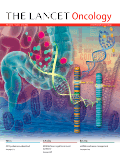
LANCET ONCOLOGY
Empowering the oncology community with cutting-edge knowledge.The Lancet Oncology is a premier peer-reviewed journal published by Elsevier Science Inc., recognized as a leading authority in the field of oncology. With an ISSN of 1470-2045 and E-ISSN 1474-5488, this esteemed journal boasts an impressive 2023 impact factor placing it in the Q1 category of oncology—reflecting its role as a critical resource for cutting-edge research. The journal publishes high-quality articles covering novel scientific discoveries, clinical advancements, and public health issues related to cancer treatment and prevention. It is ranked #5 out of 404 in the Scopus Medicine _ Oncology category, demonstrating its influence and relevance in the field, with an outstanding rank in the 98th percentile. Operating from its base in the United Kingdom, The Lancet Oncology spans a comprehensive timeframe from 2000 to 2024, making it a vital repository of oncology literature. Although it does not primarily operate on an open-access model, its significant subscription base ensures that a wealth of knowledge is accessible to researchers, professionals, and students alike, fostering a profound understanding and advancement in oncology.
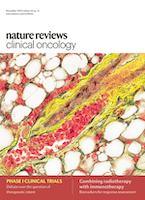
Nature Reviews Clinical Oncology
Shaping the Future of Oncology with EvidenceNature Reviews Clinical Oncology is a premier journal dedicated to the comprehensive exploration and critical evaluation of current advancements in the field of clinical oncology. Published by the esteemed NATURE PORTFOLIO in the United Kingdom, this influential journal boasts an impressive impact factor that reflects its significant role in shaping oncology research. As a Q1 ranked journal in Scopus, it occupies a notable position within the top tier of oncology publications, placing it in the 99th percentile among its peers. With a history of convergence from 2009 to 2024, it presents high-quality content through an open-access model, ensuring accessibility to vital research findings. Researchers, professionals, and students alike will find Nature Reviews Clinical Oncology an invaluable resource for staying abreast of the latest trends, biologic insights, and therapeutic innovations that drive the future of cancer treatment.
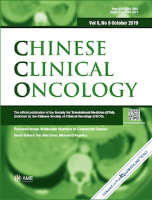
Chinese Clinical Oncology
Connecting researchers and practitioners in oncology innovation.Chinese Clinical Oncology is a distinguished journal dedicated to advancing the field of oncology and clinical research, published by AME Publishing Company. Since its inception in 2012, this journal has established its significance within the academic community, boasting an impactful presence as evidenced by its 2023 Scopus rankings, where it is positioned in the 47th percentile in the field of oncology. This open access journal features a diverse range of research, reviews, and clinical studies that aim to bridge the gap between experimental and clinical oncology, making it an invaluable resource for researchers, medical professionals, and students alike. The journal is based in Hong Kong and is committed to publishing studies that contribute to the understanding and treatment of cancer, with a strong focus on innovative methodologies and emerging therapies. With a current categorization of Q2 in Medicine and Q3 in Oncology, Chinese Clinical Oncology offers a robust platform for scholarly communication and is pivotal for those involved in cancer research and treatment.
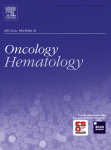
CRITICAL REVIEWS IN ONCOLOGY HEMATOLOGY
Fostering collaboration for breakthroughs in oncology and hematology.CRITICAL REVIEWS IN ONCOLOGY HEMATOLOGY, published by Elsevier Science Inc, stands at the forefront of the medical literature dedicated to advancing our understanding of cancer and blood disorders. With its ISSN 1040-8428 and E-ISSN 1879-0461, this prestigious journal boasts an impressive impact factor, reflecting its significance in the fields of Geriatrics, Hematology, and Oncology. Notably, it has achieved the distinction of being ranked in the top quartile (Q1) for these categories as of 2023, with Scopus rankings placing it in the 93rd percentile in Geriatrics and Gerontology, 87th in Oncology, and 85th in Hematology. Since its inception in 1983 and continuing until 2024, the journal serves as a critical resource for researchers, medical professionals, and students alike, aiming to publish high-quality, peer-reviewed articles that facilitate knowledge exchange and promote innovation in clinical practices and therapeutic strategies. While the journal is not open access, it remains widely accessible through various academic institutions, ensuring that vital research findings reach those who need them most.

Cancer Management and Research
Advancing oncology through innovative research.Cancer Management and Research, published by DOVE MEDICAL PRESS LTD, is a leading open-access journal dedicated to advancing the field of oncology. Since its inception in 2009, this journal has established itself as a vital resource for researchers, clinicians, and healthcare professionals focused on cancer treatment and management. With its robust impact factor and impressive Scopus ranking in the 77th percentile of oncology medicine, it provides a prominent platform for sharing high-quality research. The journal covers a wide range of topics within cancer management, including innovative therapeutic strategies, clinical trials, patient care, and health policy, ensuring a comprehensive approach to current challenges in the field. Operating from New Zealand, it invites contributions that can shape the future of oncology and improve patient outcomes globally, making it an essential addition to the libraries of those engaged in cancer research and practice.